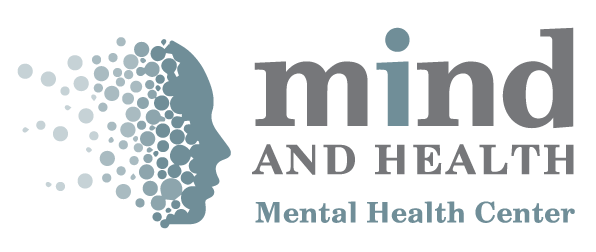Christos Petrides
Occupational Therapist
Christos Petridis successfully completed his four-year studies in the field of Occupational Therapy at the Department of Health Sciences of the European University of Cyprus in 2021 with first class honours.
He is passionate about anthropocentric therapy, aiming to bring each individual to their maximum level of functionality, promoting independence, autonomy, and well-being in clients’ daily lives.
His interventions are approached holistically, with the goal of achieving the best possible interaction between the individual, their daily activities, and the environment in which they live, communicate, and develop.
He can create and ensure a safe and pleasant therapeutic environment for individuals and organizations. He is naturally positive and enthusiastic, with strong interpersonal and organizational skills.
Christos worked as a trainee occupational therapist in the field of mental health at a public psychiatric clinic in Cyprus in the context of his clinical practice. He also worked with unaccompanied foreign minors in shelters, in institutions for the vocational rehabilitation of individuals with developmental and intellectual disabilities in semi-governmental services, and in neurological facilities of public and private hospitals in Greece and Cyprus.
Alongside his professional career, he has attended conferences and postgraduate seminars, using scientifically proven therapeutic methods. In the past, he designed and presented workshops for the international conference of the European Federation of Occupational Therapists. Finally, he participates in and organizes local voluntary events with the goal of raising awareness, informing, and supporting vulnerable and marginalized groups. “Disability is not caused by some impairment but by the absence of accessibility, that is, the hindrance of full and effective participation of a person in society on an equal basis with others.”
For Christos, disability can be overcome when barriers to accessibility are eliminated, and the individual has the ability to interact with their physical and social environment.
Specialization
Occupational Therapy
What is occupational therapy?
Occupational Therapy is a client-centred health profession concerned with promoting the health and well-being of people, in which treatment takes place through the therapeutic use of occupations. The primary goal of occupational therapy is to enable people to reach their maximum level of independence and functioning so that they are able to participate in activities of daily living (WFOT 2012; AOTA, 2022).
What are the occupations?
Occupations are any activities that people do in their daily lives, which give meaning and purpose to people’s lives, and which people want, must or need to do (WFOT, 2012).
Examples of occupations are:
- Self-Care occupations (feeding, dressing, sleeping, moving, mobility, personal hygiene e.g., toilet, brushing body and teeth)
- Productivity occupations (work, education, responsibilities/obligations e.g., raising children and pets, shopping, laundry, meal preparation, paying bills, managing finances, managing and securing housing, making appointments, medication)
- Leisure occupations (recreation, fun, entertainment, social interaction, play, hobbies, relaxation, group membership) (CAOT, 2022).
Who is Occupational Therapy for?
Occupational therapy is aimed at people of all ages who have any loss or lack of physical, sensory, mental, cognitive, or developmental function, whether congenital, or the result of illness, accident, or aging.
What can be the occupational therapy interventions?
Depending on the needs of the patient, occupational therapy can be offered individually, in groups or systemically (e.g., to members of a family).
Depending on the damage, abilities and goals of each client, occupational therapy interventions can target:
- Developing, establishing, or maintaining basic *skills of the treated person, necessary to perform the activities of daily life *Motor, Social interaction, Cognitive-Perceptual skills
- Training new techniques and strategies to the patient, to successfully perform activities of daily living / changing the way they are performed (in a different way than usual, e.g. in hemiplegia, tying shoelaces with one hand)
- Adapting and modifying the environment in which the client lives and interacts in order to eliminate barriers and promote accessibility and safety raining in the use of adaptive/special equipment and assistive technology (such as shower chairs, casters, wheelchairs, dressing and feeding equipment)
- Training in the use of adaptive/special equipment and assistive technology (such as shower chairs, splint fabrication, wheelchairs, equipment for dressing and feeding).
- The education and counselling for caregivers and family
- The training and counselling of school or work personnel
- Developing a structured, healthy, balanced and productive routine (AOTA, 2022).

